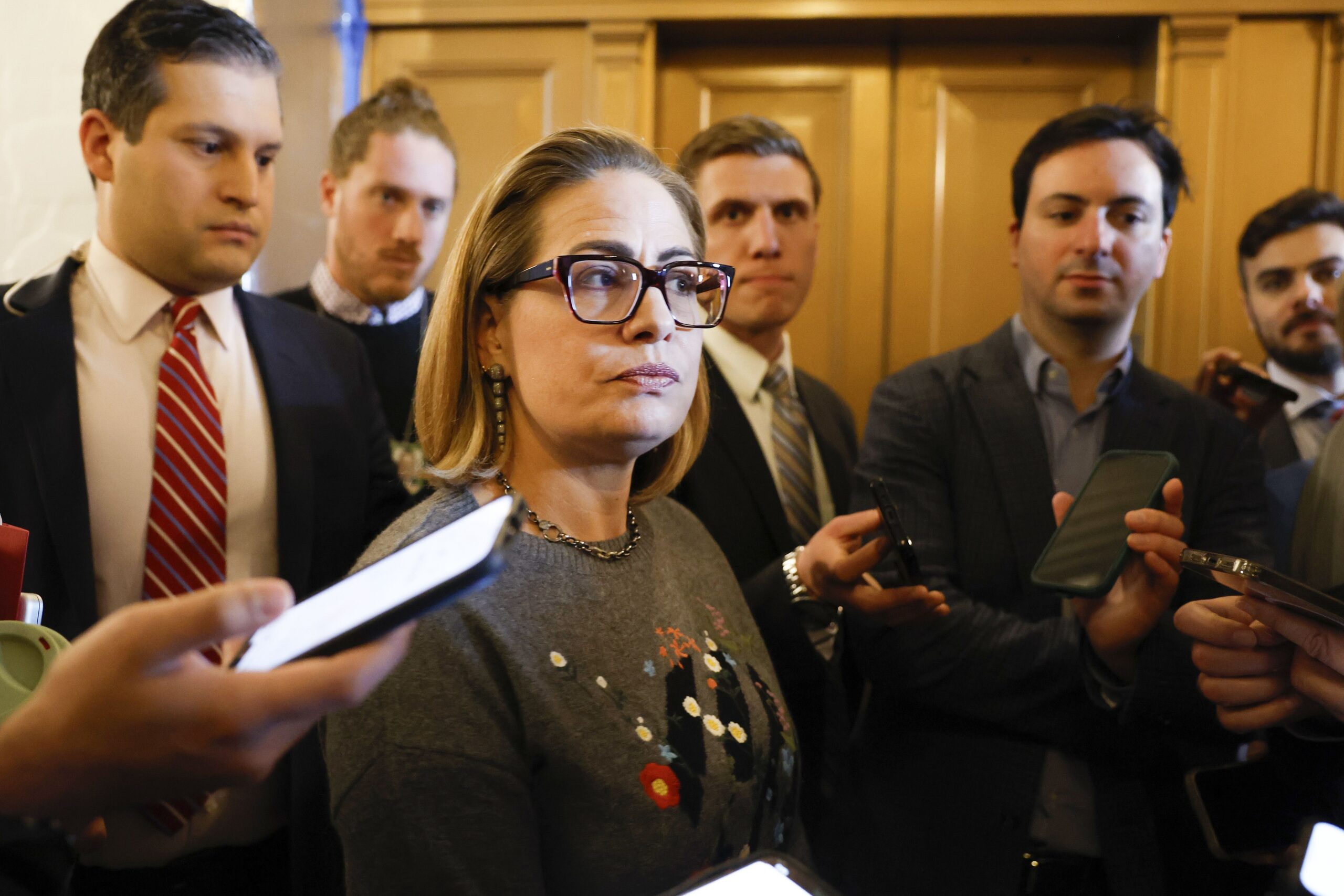Arizona’s independent Senator, Kyrsten Sinema, made a surprise announcement on Tuesday that she will not seek reelection, choosing to step down at the end of her term this year. This decision is set to significantly impact the upcoming battle for Senate control in November, as Sinema has been a pivotal figure in major Congressional negotiations.
Despite being a high-profile and somewhat controversial figure in the Senate, Sinema has often played the role of mediator between Democrats and Republicans. In her announcement, she stated, “I believe in my approach, but it’s not what America wants right now.”
Sinema’s decision removes her from the contest for her seat in a state known for its fierce political competition. Democratic Rep. Ruben Gallego of Arizona and former Arizona Republican gubernatorial nominee Kari Lake are among the top contenders in the Senate race.
Senator Steve Daines of Montana, who heads the Senate GOP’s campaign arm, told CNN that Sinema’s decision not to run for reelection could potentially benefit Lake’s campaign. “I wasn’t surprised by that announcement. And the polling shows that it actually gives somewhat of an advantage to Kari Lake, in all the polling we’ve done,” Daines said. “So it gives us another great opportunity, another open seat on the Senate map.”
Sinema officially left the Democratic Party in 2022 to register as a political independent, stating to CNN’s Jake Tapper, “I’ve never fit neatly into any party box. I’ve never really tried. I don’t want to.” She further explained that distancing herself from the partisan structure aligns with her personal beliefs and operational style, and she hopes it will resonate with many who are weary of partisanship.
Most recently, Sinema played a crucial role in negotiating a major bipartisan border deal, alongside Republican Sen. James Lankford of Oklahoma and Democratic Sen. Chris Murphy of Connecticut. The deal was intended to be paired with a foreign aid package that included assistance for Ukraine and Israel. However, Senate Republicans, initially insisting on tying the foreign aid package with border measures, later opposed the border deal following criticism from former President Donald Trump.
The Senate eventually passed a foreign aid package without border provisions, providing aid for Ukraine and Israel. However, House Speaker Mike Johnson has stated he does not intend to bring the bill to the floor, and many House Republicans are against further aid for Ukraine.
This story will be updated as more developments occur.

